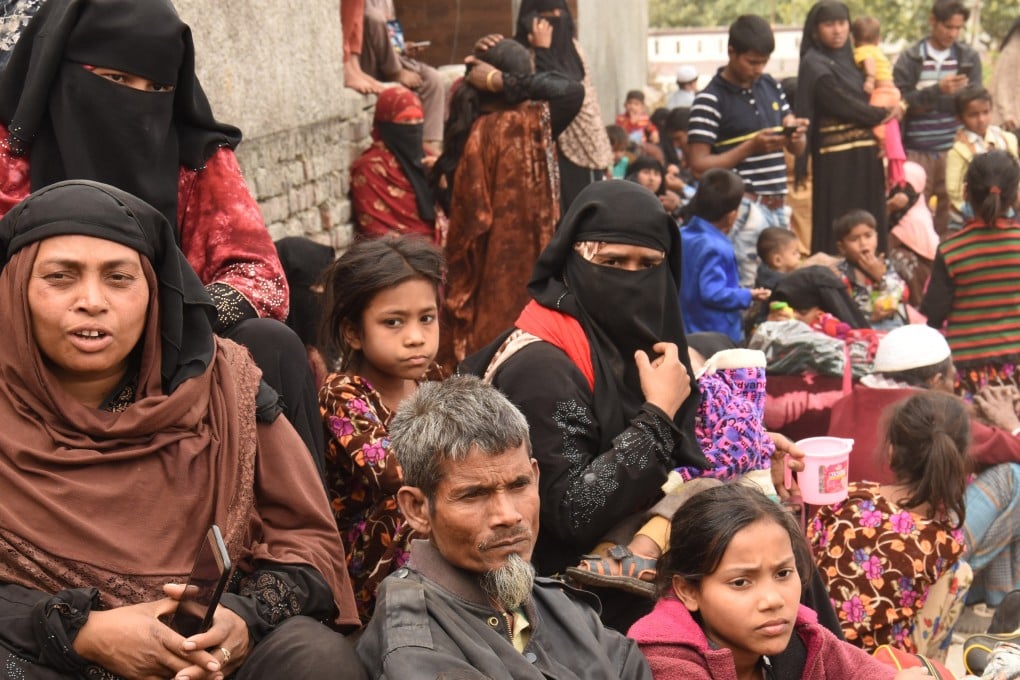India lambasted for deporting Rohingya refugees to Myanmar in violation of international law
- The move to deport the Rohingya refugees happened just as India enacted a controversial new citizenship law
- The Rohingya are at risk of becoming ‘victims of genocide’ amid the ongoing civil war in Myanmar, a rights advocate says

The CAA grants citizenship to the followers of six religions – Hindus, Sikhs, Buddhists, Jains, Parsees and Christians – who came to India from Pakistan, Bangladesh and Afghanistan before 2015 and faced religious persecution. Muslims, however, are conspicuously absent from the list.
As a result, the CAA does not apply to the Rohingya, a mainly Muslim ethnic minority from Myanmar’s Rakhine State, rendering them without basic rights within India.
Abdul Rohin, a 50-year-old Rohingya Muslim, came to India in 2014 with his family. Living in the northern state of Jammu, he said that he, his wife and eight children left Myanmar amid the “atrocities” being committed against Rohingya by government forces.
“The ethnic cleansing of Rohingya started in 2012 but at that time, not much of it was reported. So my family and I took asylum in India,” he said.
